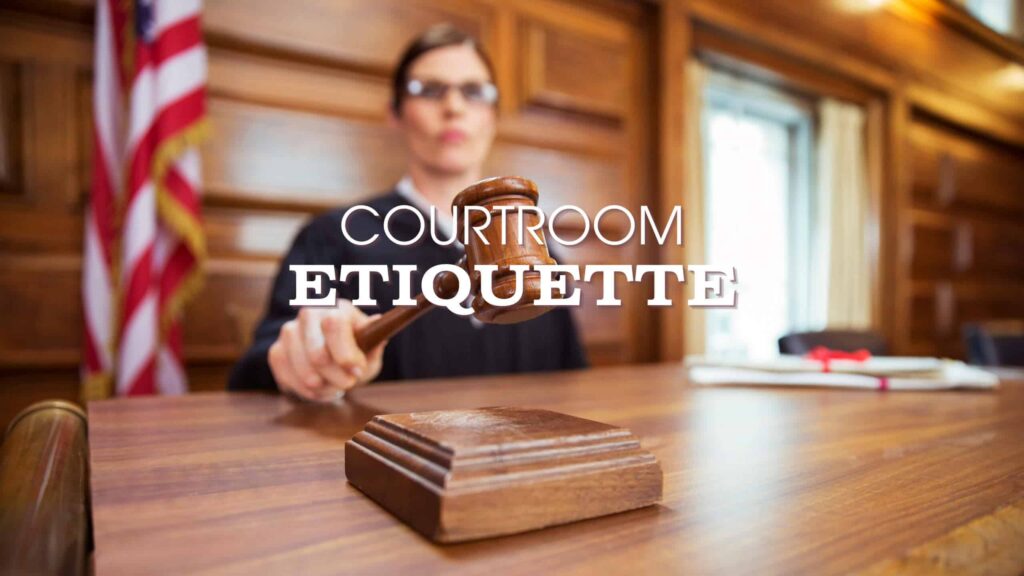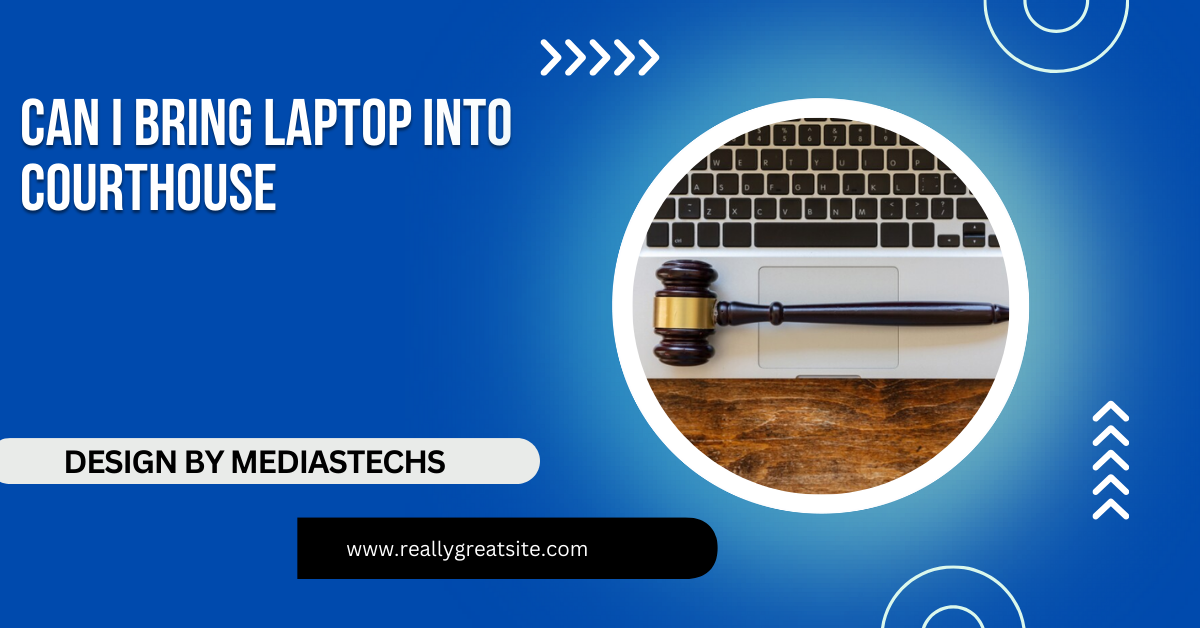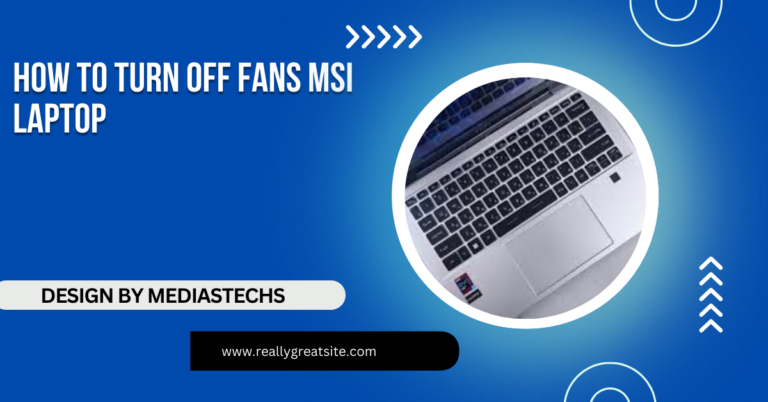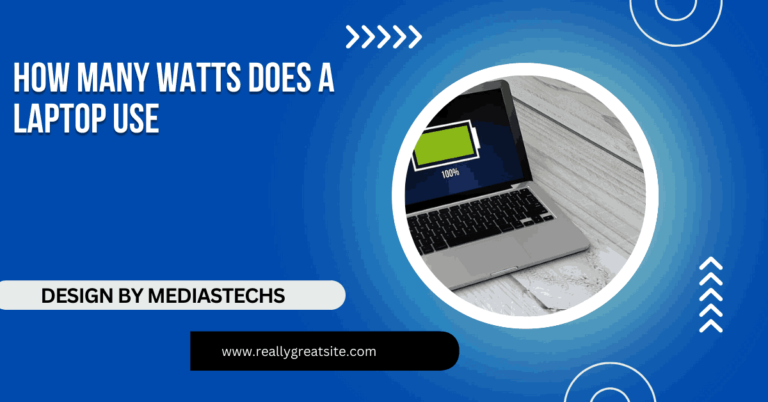Can I Bring Laptop Into Courthouse – A Detailed Guide to Courthouse Policies!
Wondering if you can bring a laptop into a courthouse? Learn the rules and restrictions for laptops in federal and state courthouses, including usage limits.
In this article, we explain the rules and guidelines for bringing a laptop into a courthouse, including what to expect during security screening and how usage is restricted. We highlight the differences between federal and state courthouses, providing helpful tips for legal professionals and visitors. Whether you’re attending a trial or meeting, find out what you need to know before bringing your laptop.
General Rules for Bringing a Laptop into a Courthouse:

Courthouses, as public institutions, are bound by strict protocols to ensure that legal proceedings remain secure and uninterrupted. These rules extend to all visitors, and they particularly target electronic devices, including laptops, which can pose both security risks and privacy concerns.
1. Security Screening: Expect Thorough Checks
Courthouses often follow stringent security protocols similar to airports, especially in higher-profile cases or larger courthouses. When entering a courthouse, you’ll be required to pass through metal detectors, and your belongings, including laptops, will go through an x-ray scanner. The security personnel may also ask you to power on your laptop to verify that it is a working device and not a security threat.
2. Use of Laptops: Limited and Restricted
Even if you’re allowed to bring a laptop into the courthouse, there will be limitations on its use. These rules exist to maintain courtroom decorum, minimize distractions, and prevent any attempts at recording confidential or sensitive legal proceedings.
Generally, laptops are not allowed for personal use inside courtrooms, and their use may be limited to the following areas:
- Lobby or waiting areas: Some courthouses allow visitors to use laptops in common areas or waiting rooms, but usage must not disturb others.
- Designated meeting rooms: In certain courthouses, there may be specific areas or rooms where laptops are permitted, particularly for legal professionals who need to consult with clients or review documents.
- Courtroom bans: Inside actual courtrooms, the use of laptops is often prohibited for the general public, including spectators. Even attorneys may need to follow specific guidelines when using their laptops during trials.
3. Recording and Photography Prohibited:
Most courthouses strictly forbid any form of recording—whether video, audio, or photography—inside courtrooms and other sensitive areas. This is a key reason why laptops, which often have built-in cameras and microphones, are heavily restricted. The intent behind these rules is to protect the privacy of individuals involved in legal cases and ensure the integrity of the legal process.
Read more :http://Is The Intel Ax211 Wired Or Wireless Laptop – A Comprehensive Guide!
4. Wi-Fi and Airplane Mode Rules:
Even in courthouses where laptops are allowed, you may be asked to keep your device in airplane mode or restrict its Wi-Fi and Bluetooth capabilities. This is to ensure that your laptop does not interfere with any of the court’s sensitive electronic equipment or network systems. In some cases, connecting to the courthouse’s network may also be restricted or entirely unavailable for public use. Always follow courthouse guidelines regarding electronic device connectivity.
Differences Between Federal and State Courthouses:

Courthouse policies on laptops and other electronic devices often differ between federal and state-level courts. These distinctions can impact whether you’re able to bring a laptop into the building, how you can use it, and any permissions required.
1. Federal Courthouse Policies: Stricter and More Controlled
Federal courthouses are known for their stricter regulations, particularly when it comes to security. Laptops and other electronic devices are usually prohibited for the general public, meaning if you’re a visitor or a member of the public attending a trial, you might not be allowed to bring your laptop into the building at all.
However, there are certain exceptions for:
- Legal professionals: Attorneys, paralegals, and others involved in legal cases can often bring laptops for casework. However, they must still follow strict guidelines on how and when laptops can be used, especially inside courtrooms.
- Approved persons: In some cases, individuals can apply for special permission to bring laptops or electronic devices into federal courthouses. This often requires prior approval from the court or specific authorization by the presiding judge.
Federal courthouses tend to have detailed electronic device policies available on their websites, so it’s wise to review these guidelines before attempting to bring a laptop or any other device inside.
2. State and Local Courthouse Policies: More Variation
State and local courthouses generally have more varied policies, and the level of strictness can differ from one jurisdiction to another. Many state courthouses do allow laptops, especially if they serve a practical purpose, like reviewing legal documents or providing support for those involved in trials.
As with federal courts, it’s important to check the specific courthouse’s website or call their office to verify whether laptops are permitted before your visit.
Who Can Bring Laptops into a Courthouse? Special Exceptions:
There are specific groups of people who may have more freedom to bring laptops into courthouses. These include:
1. Attorneys and Legal Professionals:
For legal professionals, laptops are an essential tool for accessing case files, conducting legal research, or presenting evidence in digital format. Attorneys typically have broader permissions when it comes to bringing electronic devices into courthouses, particularly when they need to present documents, take notes, or collaborate with colleagues during a case.
In federal courthouses, attorneys may need to provide documentation or clearance in advance, ensuring that their laptops are approved for entry. This helps the court maintain strict control over who is permitted to use devices in sensitive areas.
2. Journalists:
Journalists covering court cases sometimes have special privileges that allow them to bring laptops for reporting purposes. However, their use is often restricted to typing notes, and they must adhere to the same restrictions on recording devices as the general public.
Journalists may be required to sit in designated areas within the courtroom and are often subject to courtroom rules on silence and decorum. Failure to follow these rules can result in removal from the courtroom or restrictions on media access.
Read More :http://List Of Laptops You Can Install A Second Hard Drive – Your Complete Guide
3. Witnesses or Experts:
n rare cases, witnesses or expert consultants may be permitted to use laptops to present evidence, deliver expert testimony, or consult documentation relevant to a case. However, this typically requires prior approval from the court, and such use is usually heavily regulated to ensure there are no disruptions during the proceedings.
Preparing to Bring a Laptop into a Courthouse: Key Considerations
If you plan to bring a laptop into a courthouse, proper preparation can help you avoid delays or unexpected complications.
Here are some practical tips to ensure a smooth process:
1. Check the Courthouse’s Website:

Most courthouses post their security policies online, including whether laptops and other electronic devices are permitted. Review the website in advance to understand any restrictions or requirements.
2. Call Ahead for Confirmation:
If you’re unsure about the rules or have specific needs (like using a laptop for legal work or court presentations), call the courthouse ahead of time. Courthouse staff can clarify the rules for you and may even provide advice on how to expedite the security process.
3. Allow Extra Time for Security:
If you’re bringing a laptop, expect the security screening to take longer than if you were entering without electronics. Arriving early ensures you have enough time to go through the screening process without risking being late for court appearances or meetings.
4. Have Backup Options:
In case you can’t bring your laptop into the courthouse, consider having backup options. For example, you might carry printed copies of important documents or have access to them on your smartphone (if permitted).
5. Bring Identification and Authorization Documents:
If you are required to obtain special permission to bring your laptop, make sure you have all the necessary documentation or approval forms on hand. This is especially important for attorneys or those attending federal courts, where entry with electronic devices may require advanced clearance.
FAQs:
1. Are laptops allowed in all courthouses?
No, policies vary by courthouse, and federal courts are stricter than state or local courthouses.
2. Can I use a laptop inside the courtroom?
Typically, no. Most courtrooms prohibit laptop use, especially for the general public, but attorneys may have some exceptions.
3. Do I need permission to bring a laptop into a courthouse?
Sometimes. Legal professionals may need special authorization, especially in federal courthouses.
4. What restrictions apply to using a laptop in a courthouse?
Laptops may only be used in designated areas, and recording, photographing, or connecting to Wi-Fi is often prohibited.
5. Can journalists bring laptops into courtrooms?
Yes, but they must follow strict rules, such as using laptops only for note-taking and not for recording.
Conclusion:
Bringing a laptop into a courthouse is often allowed, but it depends on the courthouse’s specific rules, which vary between federal, state, and local jurisdictions. While laptops are typically permitted in common areas, their use inside courtrooms is usually restricted, especially regarding recording and Wi-Fi usage. It’s essential to check the courthouse’s policies beforehand and follow all security procedures to avoid any issues.







